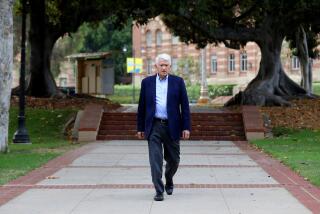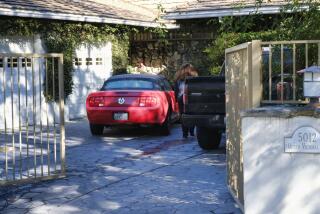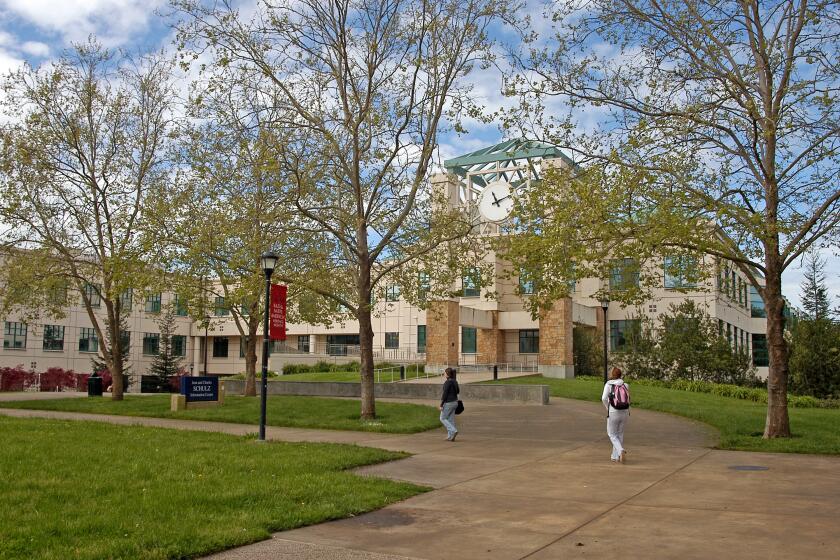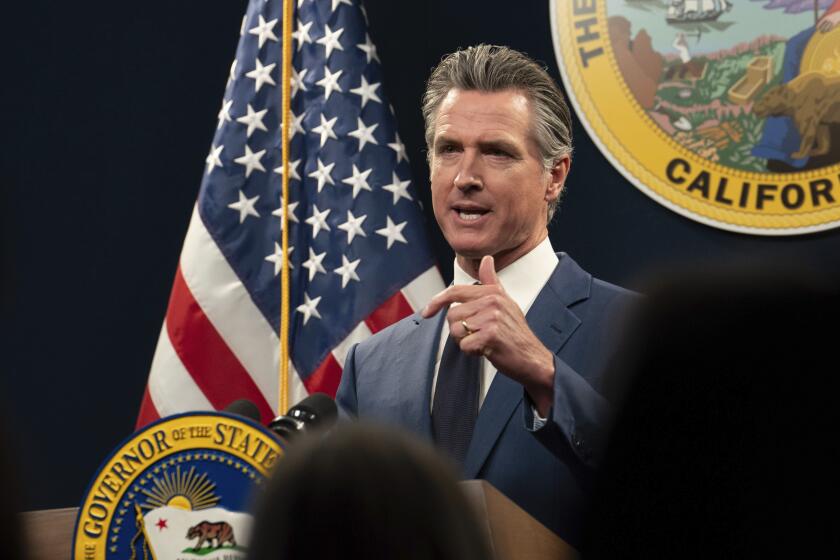Convention Center Taps City Budget for $21 Million
Imagine you decided a decade ago to buy a little rental property in hopes of padding your retirement account.
Sure, you had to take out a big loan to cover the down payment, and redoing the hardwood floors set you back, but the accountant promised that the rent would cover your expenses by now.
Of course, you assumed there would be tenants.
In the city of Los Angeles’ budget balancing act, lawmakers desperate to keep from cutting city services just discovered that they must use $21 million this year to help pay off the bonds that expanded the Convention Center. Back in 1987, when they launched the $500-million expansion, planners promised that it would pay for itself in rent and hotel tax revenues. Instead, the gleaming downtown structure and the hotels nearby stay empty much of the time.
“We’re sitting here [arguing] over nickels and dimes, to give a nickel more to libraries or a dime to recreation and parks, and we’re going to write a $21-million check to the Convention Center . . . for nothing, no services to the public,” said Jackie Goldberg, one of five council members combing the city’s proposed $4-billion budget.
“Twenty-one million dollars. Do you know what that buys?” Goldberg asked. “That buys a lot of non-police and fire needs, and it’s just going to be flushed down the toilet.”
For now, the City Council has little choice but to swallow hard and approve the $21-million payment from the general fund to the quasi-independent Convention Center. Holding the money back would lead to a default on the bonds, which would jeopardize the city’s credit rating.
But before the subsidy jumps, draining tight resources--analysts predict it would climb another $7 million next year if nothing changes--city officials hope to revolutionize the marketing strategy for the center. A private consultant is analyzing its problems.
“It’s a tremendous drain on the general fund, but there’s an opportunity to make it a real economic engine for the city,” said Steve Sugerman, Mayor Richard J. Riordan’s assistant chief of staff. “We need to make a decision about what the role of the Convention Center is. We have to decide what business we want to be in.”
Central to the debate is whether the city should focus on bringing huge conventions to the center and filling up hotel rooms with national and international guests or increase the number of consumer shows--whose guests are mainly Los Angeles-area residents.
Although full-scale conventions have a larger impact on the region’s economy, feeding taxes from hotels, restaurants and theme parks to city coffers, Los Angeles is a tough sell on the convention market because there are few hotel rooms in the downtown area near the Convention Center. The smaller consumer shows bring more direct revenue to the center in rent, parking and concessions, but do nothing for the hotel industry.
One complicating factor: The Convention and Visitor’s Bureau, a nonprofit group charged with marketing the convention center, is funded by hotel taxes and membership fees that come mainly from hotels.
“One wants to be sure that the strategies of the Convention Center and Visitor’s Bureau are on the same track,” said Councilman Mike Feuer, another budget committee member. “I don’t understand a plan that says we should have more events with fewer attendees. Less attendees may not matter to the convention center, but those attendees sleep in hotels, eat restaurant food and go to events, pouring money into the broader economy.”
Including debt service on the bonds, the Convention Center has more than $63 million in expenses each year. This year, it is projected to bring in less than $43 million, leaving a $21-million gap for the general fund--the same pot that pays for police, library books and park playgrounds--to cover.
City Administrative Officer Keith Comrie said the shortfall comes from two of the center’s revenue sources. Rather than collecting $36 million in rent as predicted in 1987, the Convention Center expects to bring in $19 million this year, Comrie said. The expansion plan predicted that $16 million in hotel taxes would pour into the center by this year; instead, it is expected to be about $11 million.
Comrie and the officials who run the center blame the four-year recession that has plagued Los Angeles and the blows to the city’s image after the 1992 riots and the 1994 earthquake.
“I’m not sure they can give it away,” Convention Center General Manager Dick Walsh said of the people marketing his product. “If you sit at your desk, you’d think it’s like shooting fish in a barrel, you could do it with your eyes closed. But it’s not that easy.
“The image of Los Angeles is still tarnished,” Walsh added. “It seems to be one damn thing after another. It takes time for people to get over it.”
Walsh and Convention and Visitors Bureau President George Kirkland say the center could handle 36 to 40 major conventions each year. Last year, there were 11. This year, it expects 19.
If all 19 happen as planned, the city expects $8 million in net economic benefit. But even as the visitors bureau struggles to sell the site to large groups nationwide, the convention center staff has booked about 500 smaller events each of the past three years, bringing in $5 million to $12 million.
Kirkland insists it is the dearth of hotel taxes that is leaving the Convention Center in the red. When the expansion was launched, analysts expected $125 million in hotel taxes by 1996-97; now the city expects only $77 million. The city has a 14% bed tax; the visitors bureau lays claim to 2% and the city earmarks 3.5% for the Convention Center.
Kirkland said that when he arrived in Los Angeles in 1990, there were 12 hotels on the drawing board for downtown; only one has been built. Downtown hotel occupancy rates hover between 50% and 60%. And because of the recession, room rates in the city have remained relatively low.
“The client reaction to the center is extremely favorable. The biggest single impediment in terms of selling the center is really the hotel industry,” Kirkland said, suggesting that the city develop a comprehensive scheme for hotels and a sports arena in the 60 acres surrounding the Convention Center.
But at City Hall, politicians are loathe to sink more money into a Convention Center that is perceived as a money pit.
“It places a number of high-priority programs of the city--whether it’s public safety or neighborhood services--at risk,” mayoral budget director Christopher O’Donnell said of this year’s subsidy.
“I’m not happy about the planning. I’m not happy about the intervening events,” Feuer said. “It’s a frustrating situation.”
More to Read
Start your day right
Sign up for Essential California for news, features and recommendations from the L.A. Times and beyond in your inbox six days a week.
You may occasionally receive promotional content from the Los Angeles Times.






